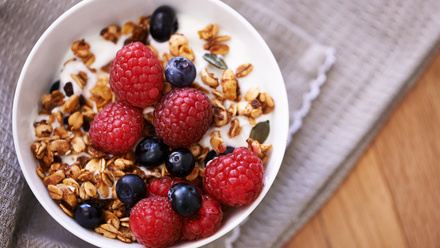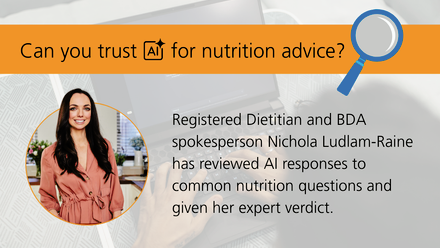Detox is a popular word in the health, beauty and wellness world. It is sometimes referred to as a ‘body-cleanse’. The theory is that from time to time you need to clear toxic waste from your body to stay healthy or boost wellness. In particular, you might be tempted by a detox diet after eating differently, for example at Christmas.
Some of the claims made in relation to detox diets include: rapid weight loss, improved digestion, improved hair, nails and skin, improved energy levels, boosted immune system, and banished cellulite.
Detox diets tend to last anything from one day to around a month and may involve:
- fasting (no food or drink) for a period of time
- consuming only fruits and vegetables
- cutting out carbohydrates and dairy foods
- consuming a limited range of foods
- avoiding caffeine and alcohol
- detox solutions – a range of pills, lotions, teas and other drinks
Exploding the myths
The whole idea of detox is nonsense. Unless you have a serious medical condition, your body is a well-developed system that has its own built-in ability to ‘detoxify’ and remove waste. Your body constantly filters out, breaks down and excretes toxins and waste products such as alcohol, medications, products of digestion, dead cells, chemicals from pollution and bacteria.
Your body has numerous organs such as the skin, gut, liver and kidney, that continually ‘detoxify’ your body from head to toe by responding to signals to remove any waste products.
There are no pills or specific drinks, patches or lotions that can do a better or magic job. If you have drunk alcohol, for example, the liver works hard to break down the alcohol into products it can remove. Products like detox teas work by acting as a laxative, which is not without risk.
Being well hydrated is a sensible strategy, but drinking too much water can be as dangerous as not drinking enough. It sounds predictable, but for the vast majority of people, a balanced diet and regular physical activity really are the best ways to maintain and maximise your health, alongside other health behaviours such as not smoking and having enough good quality sleep.
People often say they feel better when detoxing and connect that feeling to what they are or aren’t eating. However, not smoking, drinking less alcohol, getting enough sleep, fresh air and exercise will also help you feel healthier and more energised. This is more likely to be the cause of feeling better than any detox pills, lotions, teas or other drinks.
The virtues of fruit and veg
Detox diets often promote the benefits of fruits and vegetables. Fruits and vegetables are an important part of a balanced diet and you should all eat a variety and at least five portions each day. Fruit and vegetables provide vitamins, minerals, antioxidants and dietary fibre, but no single fruit or vegetable can offer a cure or miracle - it’s the variety that counts. Fruit juice and smoothies should be limited to 150ml per day to avoid drinking too much free sugar.
Allergy to wheat and dairy?
Promoters of detox diets often claim that to ‘detoxify’ the body you need to exclude foods such as wheat and dairy products. The reality is that these foods provide us with important nutrients. It is unnecessary and potentially harmful to simply cut them from the diet, especially if you are not replacing them with other foods to replace the lost nutrients.
If you think you have an allergy or intolerance to milk, wheat, or any other food then see your doctor for a medical. They can refer you to a dietitian for safe, evidence-based advice.
The facts about fasting
Fasting, or severely restricting what you eat, limits intake of energy (calories) and can result in a lack of important nutrients needed for health and wellbeing.
Rapid weight loss can occur, but this weight loss is largely water and glycogen (the body’s carbohydrate stores), rather than fat. You may feel tired and dizzy, irritable, unable to concentrate and it’s likely you’ll have less energy when following an extreme detox programme.
Furthermore, if you are fasting, your body won’t have the necessary fuel available to carry out physical activity and exercise – an important aspect of general wellbeing and healthy weight management. At the end of the programme, if you return to your old eating habits, you are likely to put back on any weight you lost.
A balanced diet
If you want to maintain optimal health then the best approach is a balanced diet, with at least five portions of vegetables and fruit each day, small portions of wholegrain carbohydrates, lean meat, fish, beans and pulses, nuts, lower-fat dairy products and alternatives, unsaturated fats and have a variety of foods in your diet.
- Avoid excessive intakes of caffeine, alcohol and high-fat, high-sugar, high-salt foods
- Eat some fresh foods, which a lot of the detox diets suggest
- Stay hydrated with water and sugar-free drinks
- If you are looking to lose weight then consider reducing portion sizes, the types and frequency of your food and drink and don’t forget to be active every day
Summary
Detox diets are a marketing myth rather than nutritional reality. They sound like a great concept and it would be fabulous if they really delivered all that they promised.
Unfortunately, many of the claims made by detox diet promoters are exaggerated, not based on robust science and any benefit is short lived. While they may encourage some positive habits like eating more fruit and vegetables, it’s best to enjoy a healthy, varied diet and active lifestyle daily, rather than following a detox diet.
Source(s)
Clemens, R., Pressman, P., and Technologists, I. (2005). Detox diets provide empty promises. Food Technology, 59(5), 18.
Dixon, B., (2005) “Detox”, a mass delusion The Lancet Infectious Diseases, 5(5), p261 DOI: 10.1016/S1473-3099(05)70094-3
NHS Choices (2013) Top diets review for 2014 [online] Available at: www.nhs.uk/Livewell/loseweight/Pages/top-10-most-popular-diets-review.aspx [Accessed 27 January 2014]
Science Media Centre (2009) Edzard Ernst comments on Duchy Original detox products [online] Available at: www.sciencemediacentre.org/edzard-ernst-comments-on-duchy-original-detox-products-2/ [Accessed 27 January 2014]
Pagoto, S.L. and Appelhans, B.M., (2013) A Call for an End to the Diet Debates JAMA. 310(7):687-688. doi:10.1001/jama.2013.8601.
Harvard Women's Health Watch (2008) The dubious practice of detox. Internal cleansing may empty your wallet, but is it good for your health? [online] Available at: www.health.harvard.edu/healthbeat/HEALTHbeat_072208.htm [Accessed 15 July 2014]







